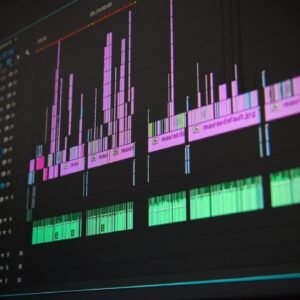What are the negatives of music in schools? This is a question I get asked quite frequently. And it’s a fair one. The opponents of public funding for music education often quote how much money it costs to give all students this opportunity. Many musicians and educational experts also think that being a musician doesn’t translate into making a lot of money after graduation.
In this article, I will talk about “Negatives Of Music In School”. Let’s start.
Why Music Education Is Under Attack
The National Association for Music Education (NAfME) is the largest organization in the U.S. representing music educators. The organization has been fighting for decades to ensure that music education remains a priority in public schools.
There is no doubt that music helps students achieve better academic results and that it is an essential part of our culture. But there are those who believe that music education should be cut from school budgets so they can spend more money on other subjects like math and science.
Why Music Education Is Under Attack
The most common arguments against music education are:
Music is not important enough to deserve funding when we’re facing budget cuts and other more pressing issues.
Music classes could be replaced with other subjects, such as math and science, which would benefit more students.
Music teachers should be replaced by technology such as computers or iPads because they’re better at teaching than humans can ever be!

Be A Music Champion
Be A Music Champion is an initiative launched by the Music Education Hub, a coalition of music teachers, support staff and parents who work together to enrich and develop music education in schools.
The campaign aims to build on the momentum of the National Plan for Music Education with a call to action for all Australians to become champions for music in their communities.
We believe that every child deserves access to excellent music education and that this can be achieved through collaboration between educators, parents, the community and government.
In today’s society, music is often seen as a way to escape from reality.
However, there are many benefits to music education that are not always considered. Here are some of the positives of music in schools:
Music education teaches problem solving skills. Music is a discipline that requires students to think critically and creatively. It also teaches them how to organize ideas and concepts in new ways.
Music helps students develop better listening skills and fosters a deeper understanding of the world around them.
Music helps build confidence and self-esteem in children and teenagers by allowing them to express themselves through an outlet they enjoy.
Music improves memory recall and concentration skills while increasing blood flow to the brain, which helps prevent Alzheimer’s disease later on in life (accordingly, this may help children focus better in school).

FAQs for Negatives Of Music In School
Now that you understand “Negatives Of Music In School”, let’s move on to the FAQ section.
Why Music Should Not Be In Schools?
Why Music Should Not Be In Schools?
Music is a great thing to have in school, but it can cause problems as well. I believe that music should not be in schools because it causes a distraction from learning and is not needed for everyone. Some people may say that music helps with their studies or tests by relaxing them, but I believe that if you feel relaxed then you shouldn’t take the test because you aren’t thinking clearly.
Music can also affect how students are viewed by others. For example, if someone plays an instrument in class, then other students might look at them differently because they think that only “nerdy” people play instruments.
Having music in school can also cause kids to become more distracted during class and less focused on learning material. This can cause the teacher to lose control over the classroom or lose respect from students who don’t want to listen to him/her anymore because they don’t care about what he/she has to say anymore. The same goes for teachers too; when they are trying to teach something and they hear loud music coming from another classroom they will get annoyed because it’s distracting them from teaching their class and making sure that everything is going smoothly.
What Are The Pros And Cons Of Music Education In Public School?
Music education in public schools is a hotly debated topic. On one end, you have those who believe that music education is an integral part of a well-rounded education. On the other end, you have people who believe that music education takes away from other subjects like math or science. So what are the positives and negatives of music education?
Pros:
Music education teaches students about rhythm and timing.
Students learn about different genres of music from around the world.
It helps students understand how to read notation and play instruments.
Cons:
Schools don’t have enough time or money to offer all musical instruments to students who want them.
The curriculum can often be confusing for teachers and students alike.
Music education is one of the most popular classes that students take in school, but there are some negatives to music education.
Pros:
It teaches kids how to work together as a team.
It helps with fine motor skills and hand-eye coordination.
It helps children with their reading skills.
It can help students learn how to follow directions and follow rules, which will help them later on in life when they need to follow directions at work or school.
Cons:
Some kids may not like music, so the class would be boring for them. This could affect their grades, since they wouldn’t do very well in a subject they didn’t like.
If a child doesn’t like music, then it could cause them to dislike their teacher or the other kids in their class who do enjoy music greatly.
Is Music A Distraction In Class?
Music is a distraction in class.
Music can be a very positive and motivating force in the classroom. I love the idea of using music to encourage students to learn, but there are some negatives to consider as well.
There is a lot of research that shows that music can be a distraction in the classroom. It certainly depends on your students and how you use it, but many teachers have found that music can be a distraction.
Some studies show that students who listen to music do better on tests than those who don’t, but this may be because they’re more relaxed or focused on something other than the test itself. Others show that students who study with music performed worse than those who didn’t listen to any kind of background noise at all! Most studies show that any type of background noise interferes with learning, including music and television shows (which is why so many schools have banned them).
So what does this mean for you? Well, if you’re planning on incorporating music into your lessons plan, just make sure you choose appropriate songs with lyrics that aren’t distracting from what you’re trying to teach or memorize by heart (like multiplication tables or spelling words).
What Are The Negative Effects Of School?
When the school bell rings, a child’s day is over. And that’s a good thing.
But what about the negative effects of school? It’s true that school is an important part of your child’s life, but it isn’t always good for them. Here are some of the negative effects of school:
School can be stressful for children and teens. They may feel pressured to get good grades, which can lead to stress and anxiety.
School doesn’t allow kids enough time to play and have fun! Kids need time to relax and enjoy their childhoods before they grow up and have responsibilities.
What Are The Negative Effects Of School?
School has a lot of benefits for kids, but it can also have some negative effects on them as well. In this article we’ll explore what are the negative effects of school and how to avoid them.
I Know Why Your Children Misbehave: How to Stop It and Change the Way You Discipline
Children struggle with school behavior because they don’t understand the importance of being able to sit still and focus on one task at a time. However, there are ways to help your child learn these important skills.
You need to find out why your child is behaving this way in the first place and then you can start working on changing their behavior for good.
What Are Advantages And Disadvantages Of Music?
The Effects of Music on Learning
Music has been an important part of human culture for thousands of years, and it continues to influence our lives today. As a result, there are many advantages and disadvantages related to the use of music in school.
One advantage that music has is that it can increase concentration and attention. Studies have shown that listening to music while doing homework improves memory and academic performance. In addition, music can help relieve stress by inducing calmness and relaxation in students. Other studies have shown that music helps children improve their reading skills by increasing their vocabulary and understanding of different types of literature such as poetry and non-fiction books.
On the other hand, there are also some disadvantages associated with using music in the classroom such as disturbing other students’ learning experience by playing loud music or having too much background noise during lessons. In addition, teachers may not be able to hear their students when they ask questions or talk to them because they are drowned out by the loud music playing over the speakers throughout the school building.
Conclusion for Negatives Of Music In School
I am going to tell you the negatives of music in school.i will start off by saying music is good when playing it the right volume and.time of day.music can help students learn better because they can concentrate more.when music is played at the wrong time and volume it can distract a student focus more on the music than what they are studying .this can hurt academic performance.
Thank you for reading, and I hope you get the point of “Negatives Of Music In School”. If not, please contact me or leave a comment below. I would be pleased to help in any way I can.





